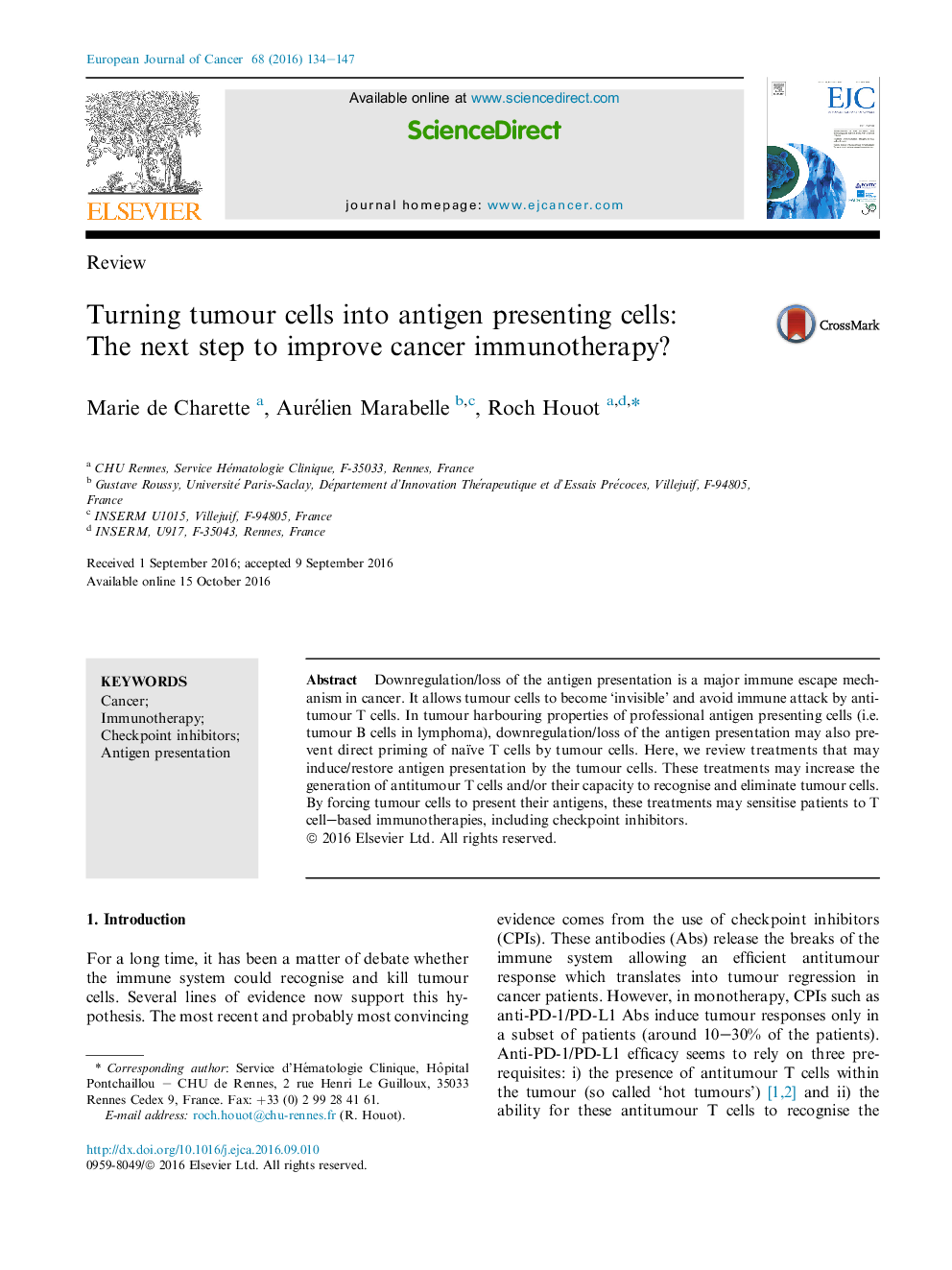| Article ID | Journal | Published Year | Pages | File Type |
|---|---|---|---|---|
| 5526569 | European Journal of Cancer | 2016 | 14 Pages |
â¢Defect in antigen presentation represents a major immune escape mechanism in cancer.â¢Restoring/forcing antigen presentation by the tumour cells may increase the generation of antitumour T cells and/or their capacity to recognise and eliminate tumour cells.â¢This may be achieved by a variety of anticancer treatments.â¢These treatments may sensitise patients to T cell-based immunotherapies, including checkpoint inhibitors.
Downregulation/loss of the antigen presentation is a major immune escape mechanism in cancer. It allows tumour cells to become 'invisible' and avoid immune attack by antitumour T cells. In tumour harbouring properties of professional antigen presenting cells (i.e. tumour B cells in lymphoma), downregulation/loss of the antigen presentation may also prevent direct priming of naïve T cells by tumour cells. Here, we review treatments that may induce/restore antigen presentation by the tumour cells. These treatments may increase the generation of antitumour T cells and/or their capacity to recognise and eliminate tumour cells. By forcing tumour cells to present their antigens, these treatments may sensitise patients to T cell-based immunotherapies, including checkpoint inhibitors.
